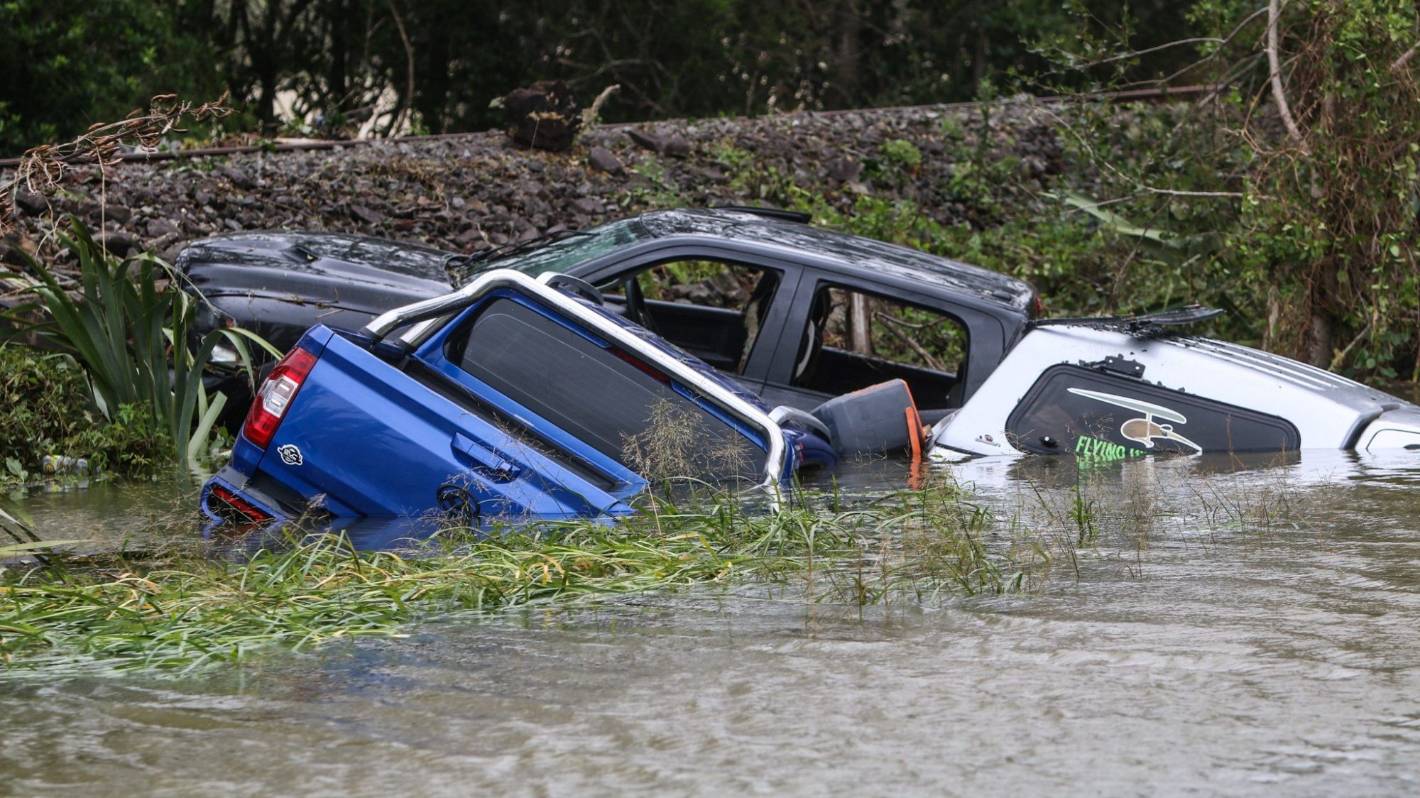Flooding and power outages persist in Northland almost a week after Cyclone Gabrielle lashed the area, but the region is getting back on its feet.
Around 7400 people in Northland were without power as of Friday 5pm – the latest update available – down from a peak of 46,000.
“The biggest thing right now is cleaning up, getting rid of fallen trees, opening roads and stabilising slips,” said Whangārei Mayor Vince Cocurullo.
Floodwaters are receding in Northland’s Hikurangi, and Cocurullo said it would take “about a week of clear weather” before the ground fully drains.
READ MORE:
* Cyclone Gabrielle: What you need to know in your region
* Cyclone Gabrielle: Fresh evacuations recommended, National Emergency Management Agency at highest alert level
* Cyclone Gabrielle: Power outages in parts of Auckland could last ‘multiple days’
The majority of Civil Defence Centres are still operating across the region, but they’re mostly being used as a place to charge devices, shower and get support, Cocurullo said.
“People still need a place to go,” Cocurullo said.
Jaymin McGuire/Supplied
Flooding and power outages remain in patches across Northland, but the region is getting back on its feet.
Northland’s biggest task is going to be getting its roads back up and running.
State Highway 1 – between the Brynderwyn Hills and Waipu – has been closed after large slips covered large swathes of the asphalt.
Cocurullo said it will likely take more than a month before it’s functioning again. Around 34 local roads across are still blocked, cutting many rural towns cut off from surrounding towns.
“It’s places like Sandy Bay. There are isolated people within that distract. We need to make sure we’ve got access routes to them, so they can get into town safely,” he said.
Anyone in need of help should contact their district council or police, Cocurullo said.
“If you know someone who needs assistance. If you’re talking to your neighbours and you know they need help, please report it. We need to make sure everyone is looked after.”
Supplied
Northland’s Hikurangi was still severely flooded on Wednesday afternoon.
Kaipara District Mayor Craig Jepson said he was also very concerned about isolated communities along Kaipara’s West Coast.
“There’s still a hell of a lot of people without power. Our main priority is getting essential supplies for isolated communities who have been without power since Sunday.
“We’re taking a generator out to Ngā Tai Whakarongorua Maare in Tinopai, and tomorrow I’m hopping on a unimog to deliver Red Cross needs and other essentials,” he said.
Jepson said Oruawharo, Batley, Whakapira and Tinpoai are all difficult to access and response teams will be visiting each of these areas on Sunday to see where they can help.
Jaymin McGuire/Supplied
Many rural roads in Northland are still blocked by felled trees and slips.
The biggest risk now is contaminated water, Jepson said.
“We’re telling people not to eat shellfish from the storm area. They can be contaminated for a month or so after an extreme event.
“Use bottled water if you are unsure about your water supply. If you don’t have bottled water make sure you boil your water for 2-3 minutes before drinking or using it to prepare food,” he said.




